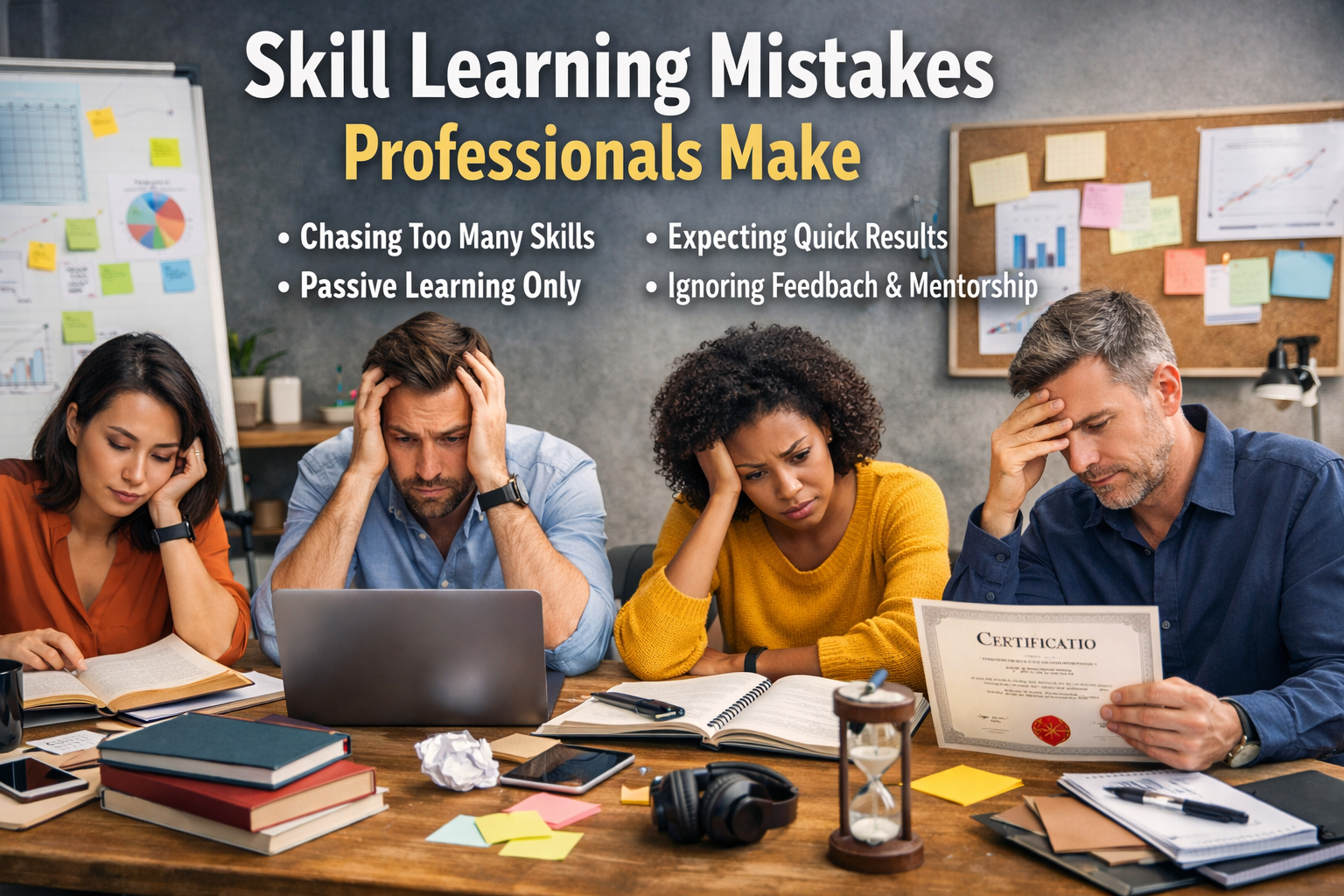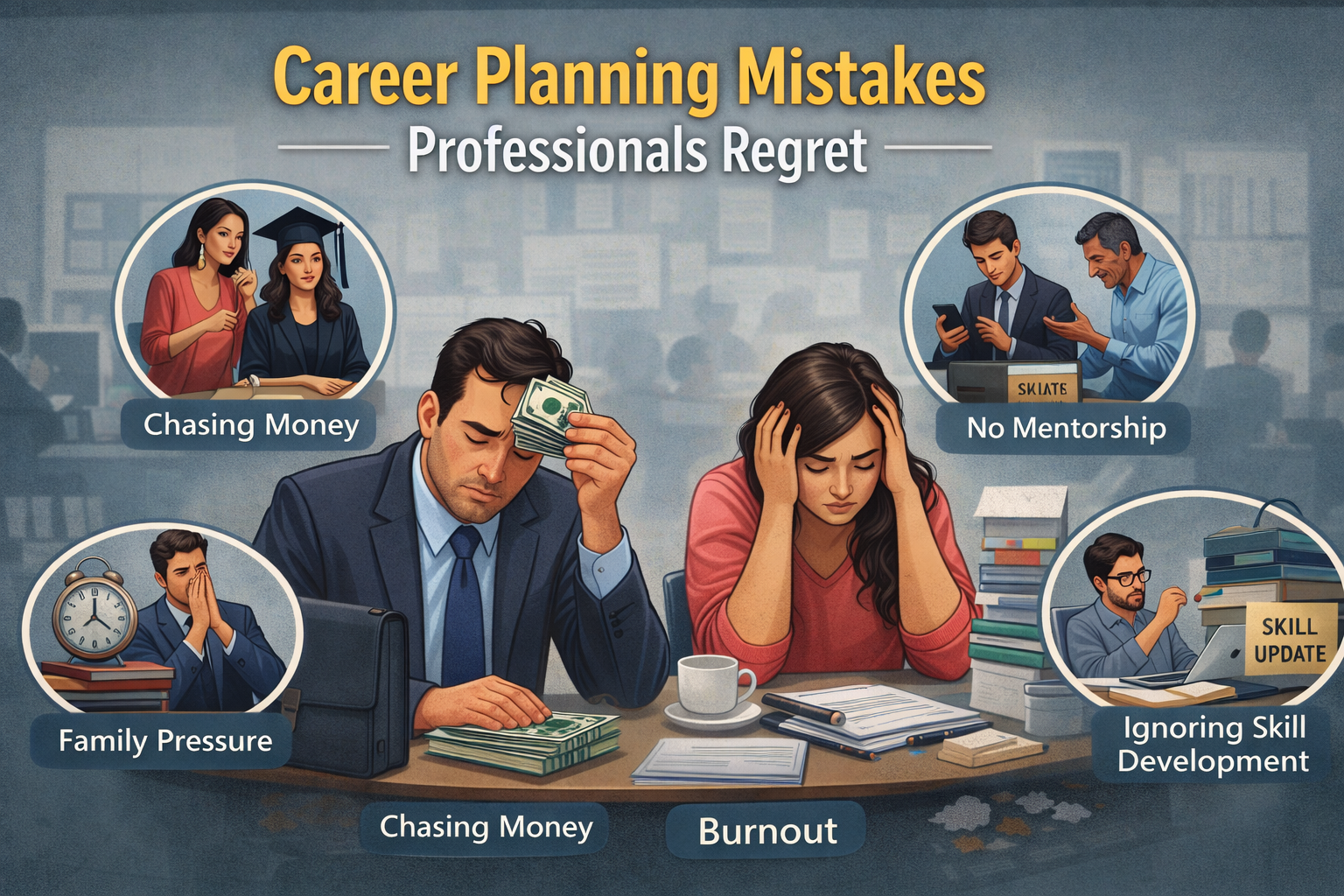What is Networking and Why It Matters?
Networking is very important in job hunting because, with the help of networking, you can reach those opportunities that are sometimes unavailable on job portals. Many companies hire candidates internally or through referrals, which means that if you have a strong network, you will be aware of those jobs. You get real industry insight from networking, like which skills are in demand, what the company’s culture is, or what the expectations of a specific role are.
When you interact with a professional, it also boosts your confidence and improves your communication skills. Which helps in your interview. Networking is not limited to jobs only – it can also be one way for your long-term career growth. If today you are having a small conversation with a professional person, no one knows, maybe the next day that person will be the reason for your big opportunity.
You can read the summary of this article here.
Benefits of Networking for Career Growth
- Opportunities
Through networking you can get new job referrals, collaborations, freelancing projects, and business partnership. Sometimes a simple conversation can provide you a bigger opportunity.
- Learning
Through networking, you get chance to learn from mentors, experienced professionals, and industry experts. You can take career tips, industry insights, and professional advice from them to fast your career growth.
- Visibility
When you do networking actively, then people notice you and your work. It increases you visibility to recruiters, potential clients, or companies through which you can get new career options.
- Support System
Networking is not just about opportunities, it is to make strong support system as well. Your connections give motivation in difficult times and help you to grow with right guidance.
Types of Networking
1. Online Networking
Building an Effective LinkedIn Profile –
Your LinkedIn profile is your digital first impression — it’s often the first place recruiters and potential employers check before contacting you. To make it effective, start with a professional profile picture and a clear, keyword-rich headline that reflects your role or target position (e.g., “Aspiring Digital Marketer | Content Creator | SEO Enthusiast”).
Write a strong summary (About section) that tells your career story — include your skills, achievements, and what kind of opportunities you’re seeking. Make sure to add detailed experience, even if it’s freelance work, internships, or college projects. Use bullet points to describe responsibilities and results clearly.
Also, don’t forget to:
- Customize your LinkedIn URL.
- Add relevant skills.
- Get endorsements and recommendations from colleagues or mentors.
- Stay active by posting, commenting, and engaging with industry-related content.
A well-crafted LinkedIn profile doesn’t just represent you — it works for you, 24/7.
2. Offline Networking
Attending Networking Events –
If you are seriously looking for a job, then only applying online is not enough. Networking events like job fairs, industry meetups, webinars, seminars, or LinkedIn live sessions give you opportunities to meet real professionals. It is very helpful for your career.
Here are some practical tips that every job seeker must follow to gain maximum benefits from these events.
Research Before You Attend :
Find out who is attending – speakers, companies, and other professionals. Make a list of people or companies you want to connect with. Prepare a few questions or topics in advance.
Prepare Your Elevator Pitch :
Have a 30-second self-introduction ready where you confidently say who you are, what you do, and what you’re looking for.
Example:
“Hi, I’m Priya, a freelance content writer focusing on lifestyle and motivation. I’m currently exploring full-time roles where I can use my skills to create engaging digital content.”
Dress Professionally :
First impressions matter! Whether the event is in-person or online, dress neatly and professionally.
Be Confident but Respectful :
Don’t hesitate to start a conversation. Ask about their work, share your interests, and try to find common ground. But avoid being pushy or asking for a job right away.
Collect Contacts and Follow Up :
Exchange LinkedIn profiles or emails. After the event, send a short thank-you message and stay in touch with the people you met.
Tools to help with networking
The first one is LinkedIn. It is a professional networking platform where people create their professional profiles to showcase their skills, experience, and achievements. This is the best platform for finding professional jobs.
Key features:
- You can connect with the industry experts, recruiters, and professionals.
- You can use your LinkedIn profile as a digital resume.
- You can see all the information about the company and its job openings by following them.
Teal
Helps you organize your job search with a smart tracker, resume builder, and job recommendations.
Key Features:
- Create customized resumes for different job roles.
- Get suggestions to improve your resume content and keywords.
- Generate personalized cover letters using AI.
- Shows which skills are missing from your resume for a specific job.
Hunter.io
Great for finding professional email addresses of people you want to connect with (especially useful if they haven’t accepted your LinkedIn request). Helps you reach out via email with personalized messages.
Key features:
- You can find any one’s professional email address by searching from their company or by names.
- If you are unsure about email authenticity, then you can check from hunter email verifier. It tells you whether the email address is active or not.
- Hunter also provides a free version in which you can search 25 searches and verify 50. It is best for beginners.
Calendly
If someone agrees to talk, make scheduling easy! Use Calendly to share your availability and let them book a time that works. It saves back-and-forth messages and looks professional.
Key features:
- You can create different types of meetings — like 15-min Coffee Chat, 30-min Intro Call, or Portfolio Review — and set your availability for each.
- Share a personalized link that shows your available time slots. The other person just picks a time — no need to message back and forth.
- Calendly integrates with Google Calendar, Outlook, iCloud, and more, so it automatically avoids double bookings and keeps everything in sync.
Notion
Create your own simple networking CRM (contact management system) to track who you’ve reached out to, when you followed up, and what the next step is. Staying organized shows you’re serious and professional.
Key features:
- Track all your applications, deadlines, statuses, and contacts in a clean dashboard. You can even use pre-made templates.
- Make pages for your resume, portfolio, interview prep, or even cold outreach templates. Everything is customizable — your space, your style.
- You can share pages with mentors, friends, or even recruiters if needed. Useful if someone is helping you with job preparation.
Conclusion
In this article, we explored how networking plays a powerful role in career growth. You learned what networking truly means, its different types, and how it can open doors to new opportunities, learning experiences, visibility, and support.
By building genuine connections—both online and offline—you can create a strong professional circle that helps you grow faster, gain confidence, and discover opportunities you might never find alone.
So, start networking today. Engage, share, and connect with people in your field. Remember, your network is not just a list of contacts—it’s your career’s biggest asset.
Read more informational blogs here.







Leave a Reply